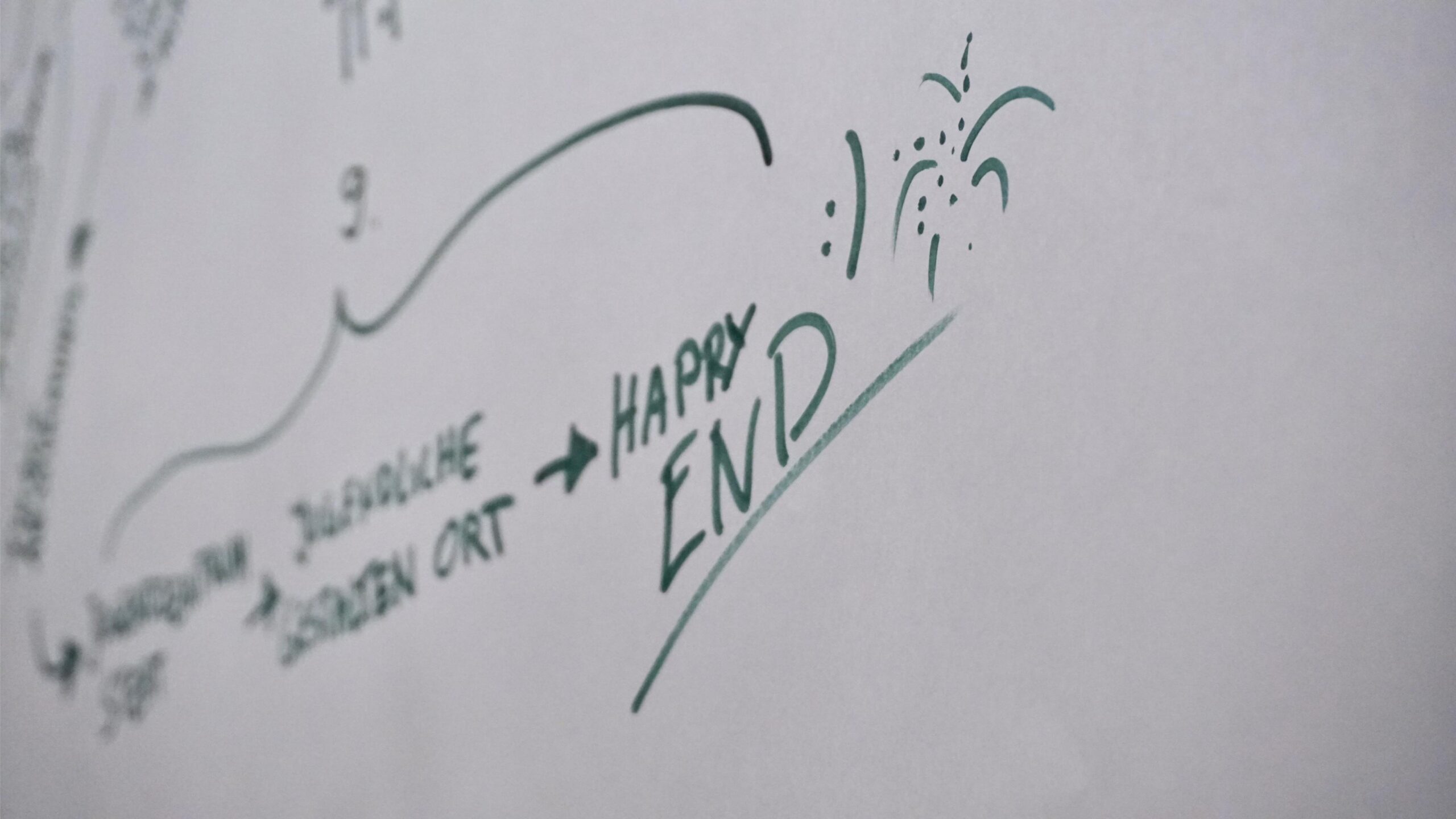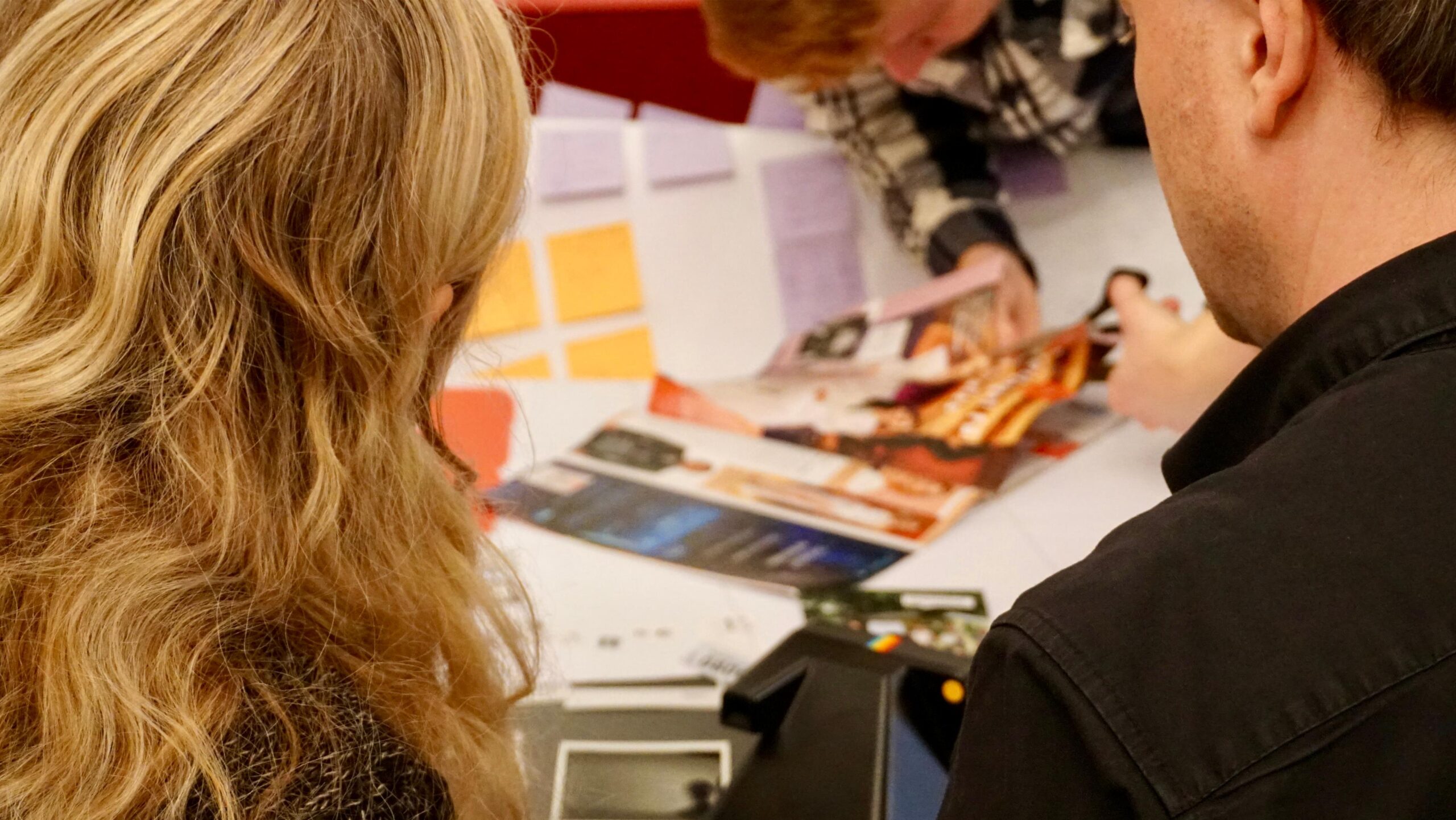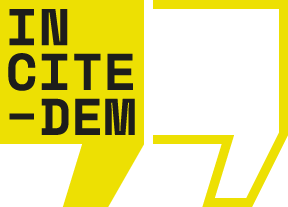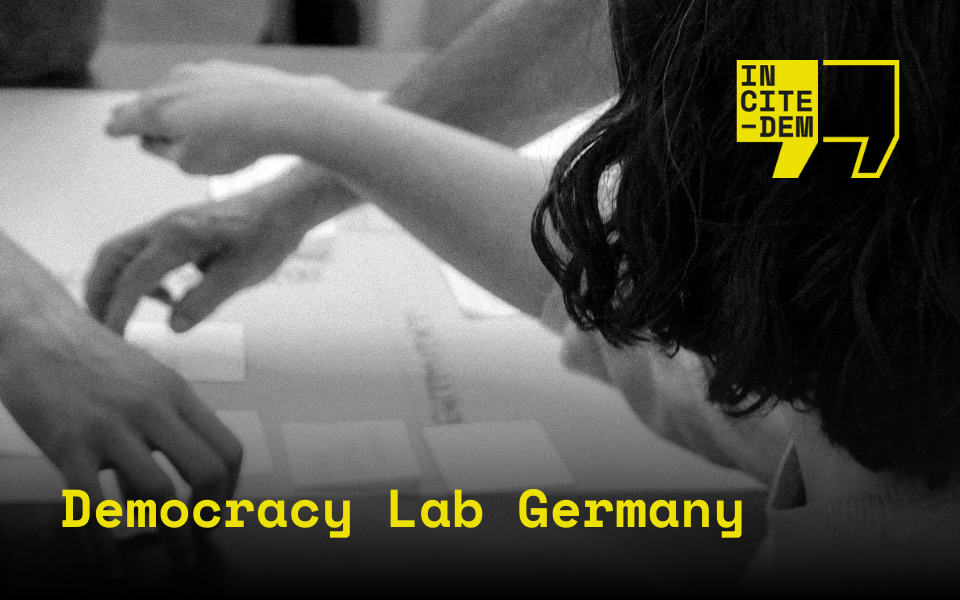How, when and where do we as citizens want to be included in the decision-making process? How should this process be designed, which democratic principles are important and how are these met? If we are allowed to dream, what democratic innovations would we wish for?
These were questions we worked with throughout two afternoons and two evenings at the German Democracy Lab in Potsdam.
During these co-creation processes participants also experienced firsthand that participatory activities are not necessarily easy or straight-forward – as one participant noted:
“I could sense that we developed a shared understanding of how democracy works, and of how unbelievably demanding it is to even reach consensus.”

The first day was dedicated to personal experiences with participatory processes, for example in school, at work or in an association. Building on activities carried out before the DemLab workshop, the participants considered how such experiences could be improved to better match core democratic principles.
A „provotyping“-exercise helped us understand who should be involved at what point in the decision-making timeline, and how. What is needed so citizens can be included and have an impact on political outcomes?
Participants rated transparency and inclusivity in the process very high. Access to participation should be an option for everyone. Open communication about how decisions are taken, and how input by citizens throughout the process is taken into account, was considered crucial in order for any outcome to be acceptable, even – or especially – if it is not in line with one’s own expressed preferences.

Questions that came up were: How do we ensure ongoing citizen participation and when is participation beyond votes necessary, i.e. what are the criteria according to which political actors decide when the public should or must be involved? Also, a paradox was pointed out: the earlier citizens are involved in decision-making processes, the less information is available to help them make an informed choice. However, as more information becomes available along the process, the scope for influence is reduced, as many decisions have already been taken.
Moreover, resources were a topic on both days. A number of participants considered it economically more efficient to involve citizens early in the process, to avoid more costly citizen assemblies at the end and/or to avoid going through a long and costly process only to realise at the end that the proposal is not supported by the public.
From a research perspective, the discussion raised questions about how such democratic innovations can be linked to representative democracy, i.e. when political bodies and bureaucracy should be linked to citizen participation and when each actor plays what role. Since the first workshop day had a strong focus on the local level, we furthermore asked ourselves how such processes could be scaled up, for example to the regional or national level.
On the second day, we moved from the challenges of (participatory) democracy towards our own ideas, dreams and visions of what democratic participation could look like. In groups, the participants came up with their own ideas of a democratic innovation. They developed their ideas by addressing how these innovations would fulfil the democratic principles discussed the day before. The groups then exemplified their democratic innovations by telling a story of its application in real (or future) life.

Interestingly, artificial intelligence and digitalisation played a role in several groups and was generally considered a tool with lots of potential for inclusive and transparent participation – although certain risks for data abuse, manipulation and identity theft were voiced. Again, the question was raised as to how these new forms of participation should be linked to existing forms of democracy.
Another very good point made by a couple of groups was that participatory processes require both time and resources. These groups suggested different concepts involving the right to take days off to be devoted to democratic work. These were meant to receive public financial support.
The DemLabs were filled with a good deal of enthusiasm, devotion and creativity, producing a wealth of ideas and insights on how democratic innovations could play a role in enhancing more inclusive and democratic participation in a changing world.

One participant succinctly stated his main take-away:
“Such diversity of opinions and possibilities floating around in other peoples’ heads. If we could implement even a fraction of that now, it would be amazing.”
By Vanessa Buth and the German DemLab team

